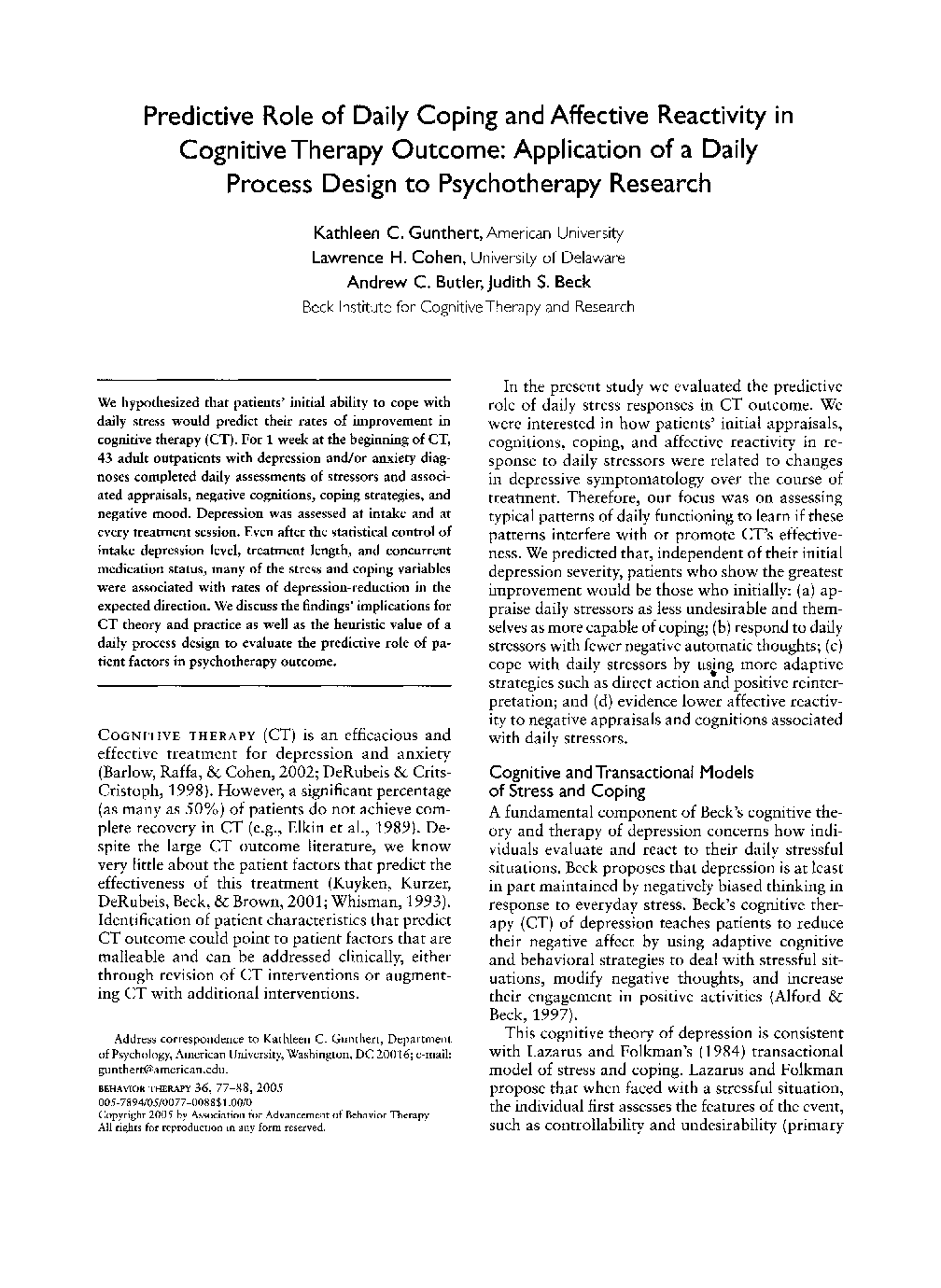| Article ID | Journal | Published Year | Pages | File Type |
|---|---|---|---|---|
| 10444283 | Behavior Therapy | 2005 | 12 Pages |
Abstract
We hypothesized that patients' initial ability to cope with daily stress would predict their rates of improvement in cognitive therapy (CT). For 1 week at the beginning of CT, 43 adult outpatients with depression and/or anxiety diagnoses completed daily assessments of stressors and associated appraisals, negative cognitions, coping strategies, and negative mood. Depression was assessed at intake and at every treatment session. Even after the statistical control of intake depression level, treatment length, and concurrent medication status, many of the stress and coping variables were associated with rates of depression-reduction in the expected direction. We discuss the findings' implications for CT theory and practice as well as the heuristic value of a daily process design to evaluate the predictive role of patient factors in psychotherapy outcome.
Related Topics
Health Sciences
Medicine and Dentistry
Psychiatry and Mental Health
Authors
Kathleen C. Gunthert, Lawrence H. Cohen, Andrew C. Butler, Judith S. Beck,
